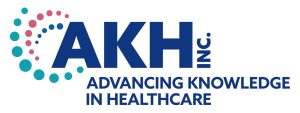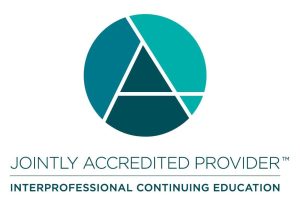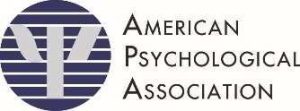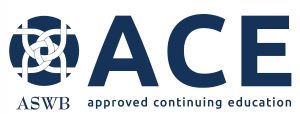COURSE INFORMATION
This comprehensive CE course provides a very comprehensive overview of studies, research, and dynamics related to death and dying. Students study many facets of death and dying, as well as major theories, process models, cultural issues, religious issues and other related content. Progression in the course then focuses on processes of mourning and grieving, including effective strategies for assisting the bereaved. Death, dying and mourning is presented also according to various age groups. This course provides for scientific inquiry into death and dying and care of the bereaved. Upon successful completion of this course, students are awarded 30 contact hours of continuing education credits.
This course is particularly designed for those who would like to apply for Certification as a Grief Counselor with the American Academy of Grief Counseling. You must have met at least one of the defined requisites to enter this program, in order to enroll into this course. Hours of CE = 30. Course Code GC 400.
Course Tuition: $ 165.00
Additional $30.00 if you want the AKH.inc Companion Certificate of Completion
Levels of course complexity: Intermediate and Advanced
Target Audience: Nurses, Physicians, Psychiatrists, Psychologist, Social Work Professionals, Counselors, Marriage and Family Therapists, Mental Health Specialists, School Counselors, Grief Professionals, Trauma Specialists, Crisis Interventionists, Stress Management Consultants, Thanatologists, Pastoral Counselors, Mental Health Care Coaches, Funeral Directors, Ordained Clergy, Rehabilitation Specialists, Substance Abuse Counselors, Spiritual Counselors, other Licensed Health Care Professionals.
Instructor/Course Author: Dominick L. Flarey, Ph.D, MBA, RN,BC, GC-C
is an Advanced Practice Nurse, a Board Certified Adult Nurse Practitioner and a Board Certified Psychiatric-Mental Health Nurse by the American Nurses Credentialing Center. Dr. Flarey is the founder and the Executive Director of the American Academy of Grief Counseling. Dr. Flarey has over 25 years’ experience teaching and practicing in the specialties of death, dying and grief support work. He was a pioneer in the days of the first publications of Dr. Elizabeth Kuebler-Ross’s works, and developed education programs based on her research findings for health care professionals working in emergency and critical care areas. He has developed numerous courses and curriculums in death, dying, and grief/bereavement at the college level and continues today to develop and teach continuing education courses to health care professionals through the American Academy of Grief Counseling. He is a consultant for Grief Counselors both nationally and internationally. As a Board-Certified Clinical Hypnotherapist, he works with clients to help them deal more effectively with death anxiety and with troubling grief reactions. As a Certified Master EFT Practitioner and a Certified Thought Field Therapy Practitioner (Algo) he is now working with clients in the area of Energy Psychology to assist them with working through many types of crippling grief/bereavement issues. He continues to work with highly qualified clinicians in the specialty practices of grief counseling to develop new courses and curriculums for health care professionals that will continue to serve the needs of clients well into the future.
Link to Resume
TEXTBOOK: There is one (1) required textbook for this course.
Death, Society and Human Experience (12th edition) by Robert J. Kastenbaum & Christopher M. Moreman. Routledge, Copyright April 9, 2018
- ISBN-10: 1138292400
- ISBN-13: 978-1138292406
.Purchase the 12th Edition of the Textbook through Amazon.com
You may Purchase this Textbook directly from the Publisher, Routledge, right online at their site. You can purchase the book or their E-book.
Purchase the 12th Edition of the Textbook from the Publisher
Additional Option: We now have a limited number of copies of this book available for direct purchase, at a reduced rate. All of the copies are used, but in very good condition. You must be an enrolled student first in order to have the option to buy a textbook from us. Further instructions are provided in the online classroom. Please check with us first before ordering and paying online for the book through us to make sure we have copies available. Email us at: mark@aihcp.org and ask if we have used books available.
TIME FRAME: You are allotted two years from the date of enrollment, to complete all of the four (4) courses in the Grief Counseling continuing education program. There are no set time-frames, other than the two year allotted time. If you do not complete the courses within the two-year time-frame, you will be removed from the course and an “incomplete” will be recorded for you in our records. Also, if you would like to complete the courses after this two-year expiration time, you would need to register and pay the course tuition fee again.
GRADING: You must achieve a passing score of at least 70% to complete this course and receive the 30 hours of awarded continuing education credit. There are no letter grades assigned. You will receive notice of your total % score. Those who score below the minimum of 70% will be contacted by the American Academy of Grief Counseling and options for completing additional course work to achieve a passing score, will be presented.
BOARD APPROVALS:
Online January 1, 2024 -December 31, 2024 (AIHCP’s courses are open for enrollment. This is for our AKH approvals only.)
Accreditation Statement

CE credit provided by AKH Inc., Advancing Knowledge in Healthcare.
 In support of improving patient care, this activity has been planned and implemented by AKH Inc., Advancing Knowledge in Healthcare and The American Institute of Health Care Professionals Inc. AKH Inc., Advancing Knowledge in Healthcare is jointly accredited by the Accreditation Council for Continuing Medical Education (ACCME), the Accreditation Council for Pharmacy Education (ACPE), and the American Nurses Credentialing Center (ANCC), to provide continuing education for the healthcare team.
In support of improving patient care, this activity has been planned and implemented by AKH Inc., Advancing Knowledge in Healthcare and The American Institute of Health Care Professionals Inc. AKH Inc., Advancing Knowledge in Healthcare is jointly accredited by the Accreditation Council for Continuing Medical Education (ACCME), the Accreditation Council for Pharmacy Education (ACPE), and the American Nurses Credentialing Center (ANCC), to provide continuing education for the healthcare team.
Physicians
AKH Inc., Advancing Knowledge in Healthcare designates this enduring material for a maximum of 30 AMA PRA Category 1 Credit(s)™. Physicians should claim only the credit commensurate with the extent of their participation in the activity.
Nurses
Credit being awarded: 30 ANCC contact hours.
Pharmacists
AKH Inc., Advancing Knowledge in Healthcare designates this continuing education activity for 30 contact hours.
AKH Inc., Advancing Knowledge in Healthcare has been authorized by the American Academy of PAs (AAPA) to award AAPA Category 1 CME credit for activities planned in accordance with AAPA CME Criteria. This activity is designated for 30 AAPA Category 1 CME credits. Approval is valid until December 31, 2024. PAs should only claim credit commensurate with the extent of their participation.
 Nurse Practitioners
Nurse Practitioners
This activity has been planned and implemented in accordance with the Accreditation Standards of the American Association of Nurse Practitioners (AANP) through the joint providership of AKH Inc., Advancing Knowledge in Healthcare and The American Institute of Health Care Professionals Inc. AKH Inc., Advancing Knowledge in Healthcare is accredited by the American Association of Nurse Practitioners as an approved provider of nurse practitioner continuing education. Provider number: 030803. This activity is approved for 30 contact hour(s) (which includes 0 hour(s) of pharmacology).
Continuing Education (CE) credits for psychologists are provided through the co-sponsorship of the American Psychological Association (APA) Office of Continuing Education in Psychology (CEP). The APA CEP Office maintains responsibility for the content of the programs.
As a Jointly Accredited Organization, AKH Inc., Advancing Knowledge in Healthcare is approved to offer social work continuing education by the Association of Social Work Boards (ASWB) Approved Continuing Education (ACE) program. Organizations, not individual courses, are approved under this program. State and provincial regulatory boards have the final authority to determine whether an individual course may be accepted for continuing education credit. AKH Inc. Advancing Knowledge in Healthcare maintains responsibility for this course. Social workers completing this course receive 30 clinical continuing education credits.
Commercial Support
There is no commercial support for this activity.
The American Institute of Health Care Professionals Inc: is an Approved Provider for Continuing Education by the South Carolina Professional Counselors, Marriage & Family Therapists and Psycho-Educational Specialists licensing board, Provider # 4637.
AIHCP is an approved provider of continuing education by the American Institute of Health Care Professionals (The Provider) is approved by the California Board of Registered Nurses, Provider number # CEP 15595 for 30 Contact Hours. Access information
This course, which is approved by the Florida State Board Of Nursing (CE Provider # 50-11975) also has the following Board of Nursing Approvals, for 30 contact hours of CE
The American Institute of Health Care Professionals Inc: is a Rule Approved Provider of Continuing Education by the Arkansas Board of Nursing. CE Provider # 50-11975.
The American Institute of Health Care Professionals Inc: is a Rule Approved Provider of Continuing Education by the Georgia Board of Nursing. CE Provider # 50-11975.
The American Institute of Health Care Professionals Inc: is a Rule Approved Provider of Continuing Education by the South Carolina Board of Nursing. CE Provider # 50-11975.
The American Institute of Health Care Professionals Inc: is a Rule Approved Provider of Continuing Education by the West Virginia Board of Examiners for Professional Registered Nurses. CE Provider # 50-11975.
The American Institute of Health Care Professionals Inc: is a Rule Approved Provider of Continuing Education by the New Mexico Board of Nursing. CE Provider # 50-11975.
Course Refund & AIHCP Policies: access here
ONLINE CLASSROOM RESOURCES AND TOOLS
* Examination Access: there is link to take you right to the online examination program where you can print out your examination and work with it. All examinations are formatted as “open book” tests. When you are ready, you can access the exam program at anytime and click in your responses to the questions. Full information is provided in the online classrooms.
* Student Resource Center: there is a link for access to a web page “Student Resource Center.” The Resource Center provides for easy access to all of our policies/procedures and additional information regarding applying for certification. We also have many links to many outside reference sites, such as online libraries that you may freely access.
* Online Evaluation: there is a link in the classroom where you may access the course evaluation. All students completing a course, must, without exception, complete the course evaluation.
* Faculty Access Information: you will have access to your instructor’s online resume/biography, as well as your instructor’s specific contact information.
* Additional Learning Materials: some faculty have prepared additional “readings” and /or brief lecture notes to enhance your experience. All of these are available in the online classrooms.
COURSE OBJECTIVES: Upon completion of this course, you will be able to:
1). Discuss the concept of invisible death and the attitudes and behaviors around it.
2). Explain an historical perspective of current death practices.
3). Discuss demographic, psychological, sociological and economic factors which contribute to how death is dealt with and processed.
4). Discuss statistics and trend patterns in death occurrence.
5). Explain the application of the dying trajectories concept.
6). Discuss how age, stress and culture influence death.
7). Discuss theories of death and dying, stages and cycles.
8). Describe near death experiences and interpretations of them.
9). Describe the final step in the living/dying process.
10). Discuss grief, loss and mourning and reactions that people experience.
11.) Identify and discuss emotions experienced in coping with loss.
12.) Use developmental frameworks to assess children’s and adolescent’s ability to perceive death
13.) Identify the needs of terminally ill children.
14.) Assess the needs of children who are terminally ill or grieving the death of others.
15). Discuss issues of death and dying related to natural disasters, murder, accidents.
16). Discuss suicide and attempted suicide among the youth.
17). Discuss the meaning of death of the adult’s parent.
18). Describe the experience of loss of a child to parent and family.
19). Analyze impending death of the aged from developmental frameworks.
20). Explain the impact of death of spouse, children or pets to elderly persons.
21). Identify the social effects of aging.
22). Discuss practical procedures and tasks concerning death.
23). Discuss ethical and medical-legal concepts regarding the right to die.
24). Discuss historical views of how people people bury the dead.
25). Describe religious and secular practices regarding burial of the dead.
COURSE CONTENT:
A brief abstract of content:
Attitudes and beliefs about death
Anxiety, denial and acceptance
Theories of death anxiety
Theoretical perspectives on death anxiety
Acceptance and denial of death
Nature and meaning of death
Biomedical Approaches to death
Interpretations of the death state
Characteristics of the death system
Functions of the death system
Natural disaster and death
Terror Management Theories
Death attitudes and practices through the centuries
The changing death system
Causes of death
Trajectories of dying
Death and communications
Theoretical models of the dying process
Hospice and palliative care
Relief of pain and suffering
Hospice decision making and challenges
End of life issues and decisions
Right to die decisions
Organ donation
Suicide
Cultural meanings of suicide
Sociological theories of suicide
Neuropsychological perspectives of suicide
Suicide prevention
Violent deaths
Terrorism
Accidents and disasters
Euthanasia
Assisted death
The good death
Pain relief for terminally ill
Organ transplants
Abortion
Death in the world of childhood
How children grieve
The dying child
Bereavement, grief and mourning
Types of grief
Theories of grief
Recovery from grief
Bereavement in later life
Death risk for the bereaved
Grief support and care
The funeral process
Improving the funeral process
Memorialization
Life after death theories and research
Near death experiences
Beliefs in the after life
Compassionate fatigue
Professional burn out
Death education
Grief counseling
Shifting meanings of life and death




